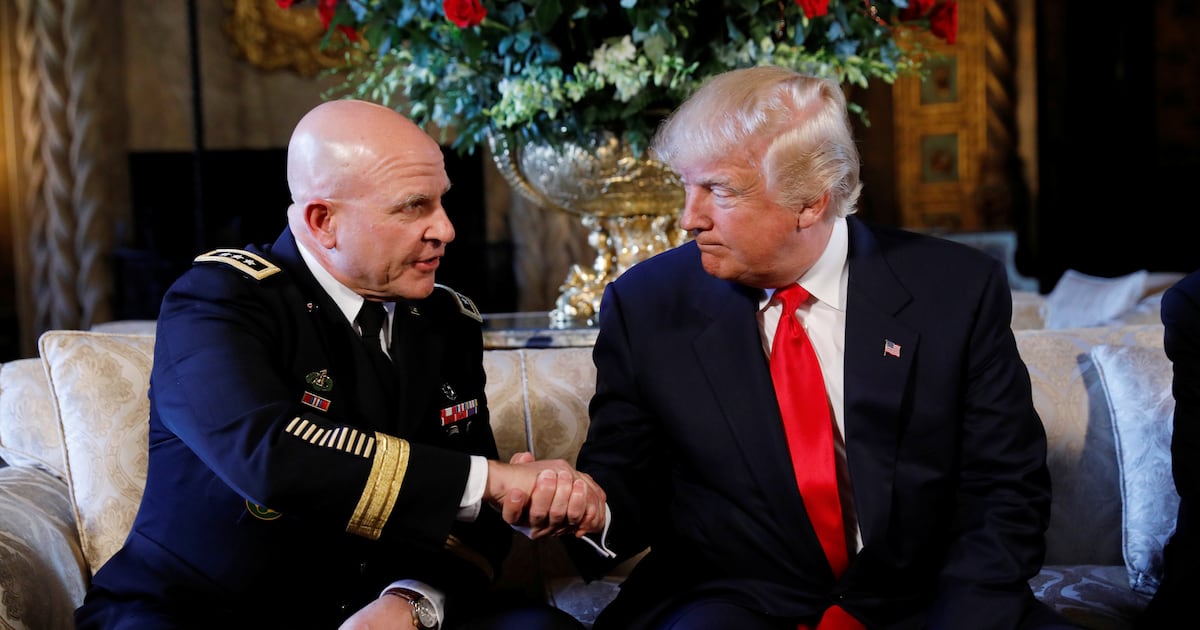The military's outlawing of gayness has made it one of the last bunkers of safe male bonding. Brendan Tapley on what motivates Don't Ask, Don't Tell's supporters.
This week, the military survey on Don't Ask, Don't Tell revealed that approximately 70 percent of respondents did not believe repealing the policy would pose a problem to the armed forces. But there's also a powerful and increasingly vocal minority who are deeply resistant to ending the ban. In addition to the survey's 30 percent—who expressed fears about contracting AIDS, getting leered at in the showers, or harming the military's credibility and cohesion—intense opposition came from prominent politicians, such as Senators Lindsey Graham and John McCain, and military men like Marine Commandant General Jim Amos and Air Force Chief of Staff General Norton Schwartz. Their voices have been supported by pundits and members of the media whose claims have ranged from saying repealing DADT would "wreck the finest military force in the world" to wondering, like Ann Coulter, if being openly gay in the armed forces would mean soldiers coming to morning drills dressed as Cher impersonators.
Why this division and vitriol? What exactly is Don't Ask, Don't Tell safeguarding? After all, the anger that ending the ban has provoked can't really be about protecting the sanctity of the group shower or preventing an explosion of foxhole confessions. So why is it worth such energetic defending? Paradoxical though it may sound, what the policy actually ensures is that men still have a place to experience male-male intimacy without being called gay.
As recently as 100 years ago, men talked about their love for each other freely. In fact, the desire for intimate fraternity was considered more than just normal for a male life; it was believed to be essential. Men acted on this desire without fearing prejudice or ridicule. Here's a fairly common example from the 1830s, taken from the journal of Albert Dodd, a Yale student, about his friend John:
I regard him, I esteem, I love him more than all the rest… it is not friendship merely which I feel for him, or it is friendship of the strongest kind. It is heart-felt, a manly, a pure, deep, and fervent love.

As open homosexuality emerged, however, it became masculinity's foil, its antithesis. Men grew skittish about wanting to express sentiments like Dodd's or participate in environments where fraternization was now equated with gayness. And so men stopped acting on their fraternal impulses, in spite of the fact that they did not go away. In fact, quite the opposite happened: The fear of being gay, effeminate, the anti-male—take your pick—has created a more intense, if repressed, longing in men to find and experience those rare environments where men can be close to other men without "forfeiting" their masculinity.
The prospect of losing a fortress as happily time-warped as the military is terrifying to men because it means the hunger strike for real male bonding, not its sitcom version, must go on.
• Linda Hirshman: Don’t Ask, Don’t Tell TurncoatsThe military, even with female soldiers, remains a model for this type of masculine environment. If nothing else, enlisting as a soldier makes one's credentials as a man irrefutable. And those credentials offer a powerful alibi, or cover, for strong male connection. Soldiers can act on correcting the modern vacuum of male intimacy without paranoia or self-consciousness, without arousing prejudice or suspicion. They can pursue it with carefree gesture and intent and still be, in a word, men. Whether that pursuit occurs in the group shower, on the battlefield, or in more banal circumstances, hardly matters. What matters is that, in finally being available, this rarest of outlets isn't taken away from men.
Ending Don't Ask, Don't Tell threatens this because in bringing even a hint of homosexuality into this community, a man must once more lead that paranoid, self-conscious existence. He must worry—whether he tells another guy he loves him or snaps a towel at him—that either could break the code of 21st-century maleness, which says a man can't make such gestures or have such intentions. The prospect of losing a fortress as happily time-warped as the military is terrifying to men because it means the hunger strike for real male bonding, not its sitcom version, must go on.
Men can't, or won't, say any of this. We won't point out that our version of manhood is more conservative than the one a hundred years before. Or that today's manhood unfairly forces men to go without a full half of human intimacy. And not just any intimacy, but a pivotal kind: an intimacy that affirms one's manhood by the only group who can—other men.
Instead, we'll talk about the group shower, unit cohesion, foxhole flirtation. But even if it did come down to the group shower or the foxhole, it still proves that men want to protect those remaining environments that allow us to be close to each other without risking condemnation.
In Nathaniel Frank's book on Don't Ask, Don't Tell, Unfriendly Fire, he writes that Charles Moskos, the architect of the policy, "told lawmakers that the principal reason for the gay ban is to repress the homoerotic desire that is an inherent part of military culture."
Inherent, but perhaps like many things in today's masculinity, misconstrued. Homoeroticism might be how this particular repressed desire gets expressed, but intimacy is not the same thing as eroticism. We know that because, long before there was a taboo about gay love, there were men who loved each other enough to take a bullet for the other. Repealing DADT calls a very critical question for modern masculinity and the men who represent it: Are we brave enough to see love between one another as something we no longer need a battlefield to justify?
Brendan Tapley's essays have appeared in The New York Times, The Chicago Tribune Sunday Magazine, Bust, Emmy, and on MSN. He is writing a memoir on masculinity.






